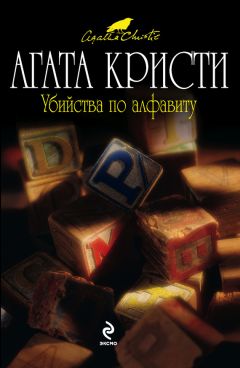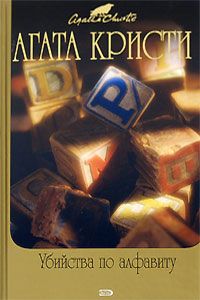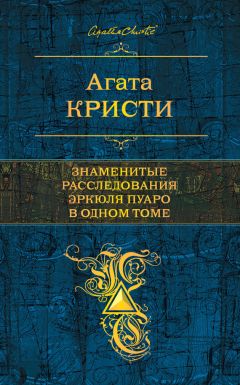Agatha Christie - Английский язык с Агатой Кристи. Убийства по алфавиту
We arrived at Combeside (мы прибыли в Кумсайд; combe — ложбина; овраг) (as the house was called) (как назывался дом) at about eight o'clock (около восьми часов). The door was opened by an elderly butler (дверь была открыта пожилым дворецким) whose shaking hands and disturbed face showed how much the tragedy had affected him (чьи трясущиеся руки и обеспокоенное лицо показывали, насколько сильно трагедия затронула его; to affect —приносить вред; волновать, трогать).
stroll [strǝʋl], combe [ku:m], butler [ˈbʌtlǝ]
Sir Carmichael Clarke, it seemed, had been in the habit of taking a stroll after dinner every evening. When the police rang up — at some time after eleven — it was ascertained that he had not returned. Since his stroll usually followed the same course, it was not long before a search party discovered his body. Death was due to a crashing blow with some heavy instrument on the back of the head. An open A.B.C. had been placed face downwards on the dead body.
We arrived at Combeside (as the house was called) at about eight o'clock. The door was opened by an elderly butler whose shaking hands and disturbed face showed how much the tragedy had affected him.
"Good morning, Deveril," said the local police officer (доброе утро, Деверил, — сказал офицер местной полиции).
"Good morning, Mr. Wells (доброе утро, мистер Уэллс)."
"These are the gentlemen from London, Deveril (эти джентльмены из Лондона, Деверил)."
"This way, sir (сюда: «этой дорогой», сэр)." He ushered us into a long dining room (он провел нас в длинную столовую) where breakfast was laid (где был накрыт завтрак; to lay — накрывать на стол). I'll get Mr. Franklin, sir (я позову мистера Франклина, сэр)."
A minute or two later (минуту или две спустя) a big fair-haired man with a sunburnt face entered the room (большой светловолосый мужчина с загорелым лицом вошел в комнату; to burn — гореть; жечь).
This was Franklin Clarke (это был Франклин Кларк), the dead man's only brother (единственный брат убитого).
He had the resolute competent manner of a man accustomed to meeting with emergencies (у него было решительное, уверенное поведение человека, привычного к встрече с непредвиденными ситуациями; resolute —непоколебимый, решительный; competent — соответствующий, подходящий; осведомленный, сведущий).
sunburnt [ˈsʌnbǝ:nt], resolute [ˈrezǝlu:t], accustom [ǝˈkʌstǝm]
"Good morning, Deveril," said the local police officer.
"Good morning, Mr. Wells."
"These are the gentlemen from London, Deveril."
"This way, sir." He ushered us into a long dining room where breakfast was laid. I'll get Mr. Franklin, sir."
A minute or two later a big fair-haired man with a sunburnt face entered the room.
This was Franklin Clarke, the dead man's only brother.
He had the resolute competent manner of a man accustomed to meeting with emergencies.
"Good morning, gentlemen (доброе утро, джентльмены)."
Inspector Wells made the introductions (инспектор Уэллс представил /всех/: «сделал официальные представления»; introduction — введение; официальное представление; to introduce — вводить; представлять).
''This is Inspector Crome of the C.I.D. (это инспектор Кроум из Управления уголовных расследований), Mr. Hercule Poirot (мистер Эркюль Пуаро) and (и) — er (э) — Captain Hayter (капитан Гейтер)."
"Hastings," I corrected coldly (Гастингс, — холодно исправил я /его/).
Franklin Clarke shook hands with each of us in turn (Франклин Кларк пожал руки каждому из нас по очереди; to shake hands) and in each case the handshake was accompanied by a piercing look (и в каждом случае рукопожатие сопровождалось пронизывающим взглядом; to pierce — прокалывать, пронзать, протыкать).
"Let me offer you some breakfast," he said (позвольте мне предложить вам завтрак). "We can discuss the position (мы может обсудить положение) as we eat (пока мы едим)."
There were no dissentient voices (несогласных голосов не было; sentient — ощущающий; сознающий) and we were soon doing justice to excellent eggs and bacon (и мы вскоре отдали дань: «оказали справедливость» отличным яйцам с беконом) and coffee (и кофе).
introduction [ɪntrǝˈdʌkʃ(ǝ)n], handshake [ˈhændʃeɪk], dissentient [dɪˈsenʃɪǝnt]
"Good morning, gentlemen."
Inspector Wells made the introductions.
''This is Inspector Crome of the C.I.D., Mr. Hercule Poirot and — er — Captain Hayter."
"Hastings," I corrected coldly.
Franklin Clarke shook hands with each of us in turn and in each case the handshake was accompanied by a piercing look.
"Let me offer you some breakfast," he said. "We can discuss the position as we eat."
There were no dissentient voices and we were soon doing justice to excellent eggs and bacon and coffee.
"Now for it," said Franklin Clarke (теперь к делу: «теперь для этого», — сказал Франклин Кларк). "Inspector Wells gave me a rough idea of the position last night (инспектор Уэллс дал мне общее представление: «грубую идею» положения прошлой ночью) — though I may say (хотя я могу сказать) it seemed one of the wildest tales (это показалось одной из самых диких историй; tale — рассказ, сказка) I have ever heard (/которую/ я когда-либо слышал). Am I really to believe (должен ли я действительно поверить), Inspector Crome (инспектор Кроум), that my poor brother is the victim of a homicidal maniac (что мой бедный брат является жертвой маньяка-убийцы), that this is the third murder (и что это третье убийство) that has occurred (которое произошло) and that in each case an A.B.C. railway guide has been deposited beside the body (и что в каждом случае железнодорожный справочник «Эй-би-си» лежал рядом с телом; to deposit — класть, размещать)?"
''That is substantially the position, Mr. Clarke (таково, по существу/в общих чертах, положение, мистер Кларк; substantial — действительный, материальный, реальный, реально существующий; substantially — по существу; в основном; большей частью; главным образом)."
"But why (но почему)? What earthly benefit can accrue from such a crime (какую возможную прибыль можно извлечь из такого преступления; earthly — земной; мирской; возможный, здесь — для усиления высказывания: «какую чертову пользу…»; to accrue — увеличиваться; выпадать на долю; добывать) — even in the most diseased imagination (даже в самом нездоровом воображении)?"
rough [rʌf], substantially [sǝbˈstænʃǝlɪ], accrue [ǝkˈru:]
"Now for it," said Franklin Clarke. "Inspector Wells gave me a rough idea of the position last night — though I may say it seemed one of the wildest tales I have ever heard. Am I really to believe, Inspector Crome, that my poor brother is the victim of a homicidal maniac, that this is the third murder that has occurred and that in each case an A.B.C. railway guide has been deposited beside the body?"
''That is substantially the position, Mr. Clarke."
"But why? What earthly benefit can accrue from such a crime — even in the most diseased imagination?"
Poirot nodded his head in approval (Пуаро одобрительно кивнул головой: «Пуаро кивнул головой в одобрение»). "You go straight to the point, Mr. Clarke," he said (вы поняли самую суть: «вы идете прямо к точке/к главному пункту», мистер Кларк).
"It's not much good looking for motives at this stage, Mr. Clarke," said Inspector Crome (не стоит: «это есть не много хорошего» искать мотивы на этой ступени, мистер Кларк). "That's a matter for an alienist (это дело для психиатра) — though I may say (хотя я могу сказать) that I've had a certain experience of criminal lunacy (что у меня есть определенный опыт /работы/ с криминальным безумием) and that the motives are usually grossly inadequate (и что мотивы являются обычно сильно неадекватными). There is a desire to assert one's personality (бывает желание утвердить личность), to make a splash in the public eye (устроить сенсацию на публике; splash — брызганье; всплеск, плеск; брызги; разг. показной, внешний эффект; шумиха, шумная реклама; сенсация) — in fact (фактически), to be a somebody instead of a nonentity (быть кем-то вместо /того, чтобы быть/ никем; entity — бытие; суть, существо)."




